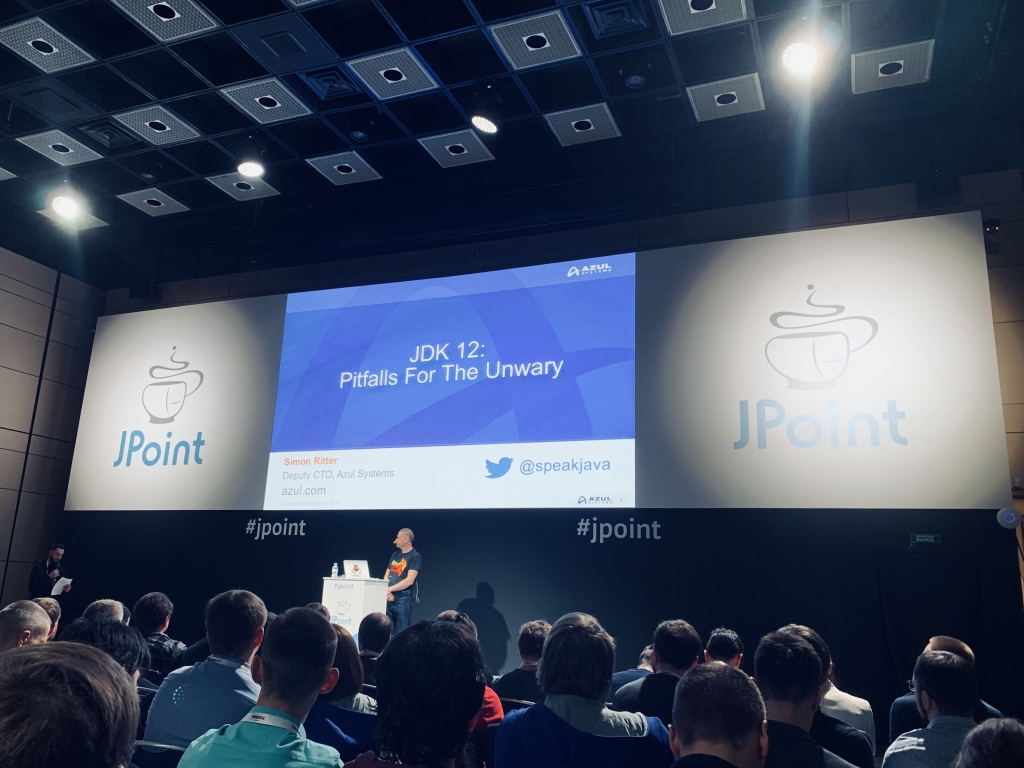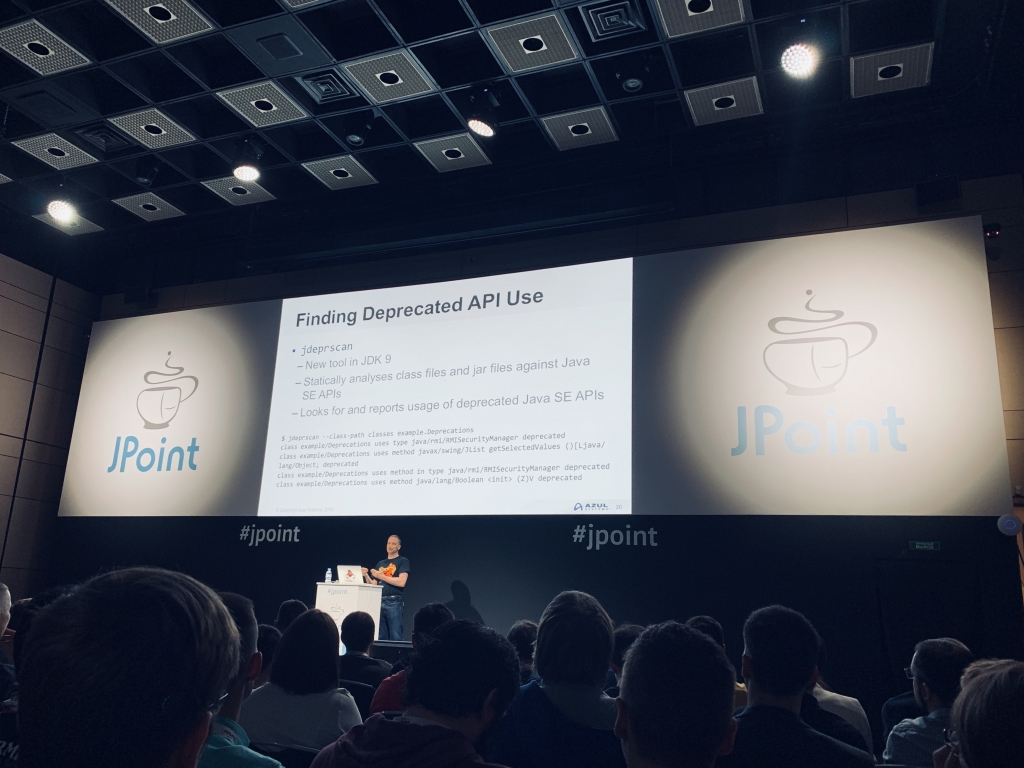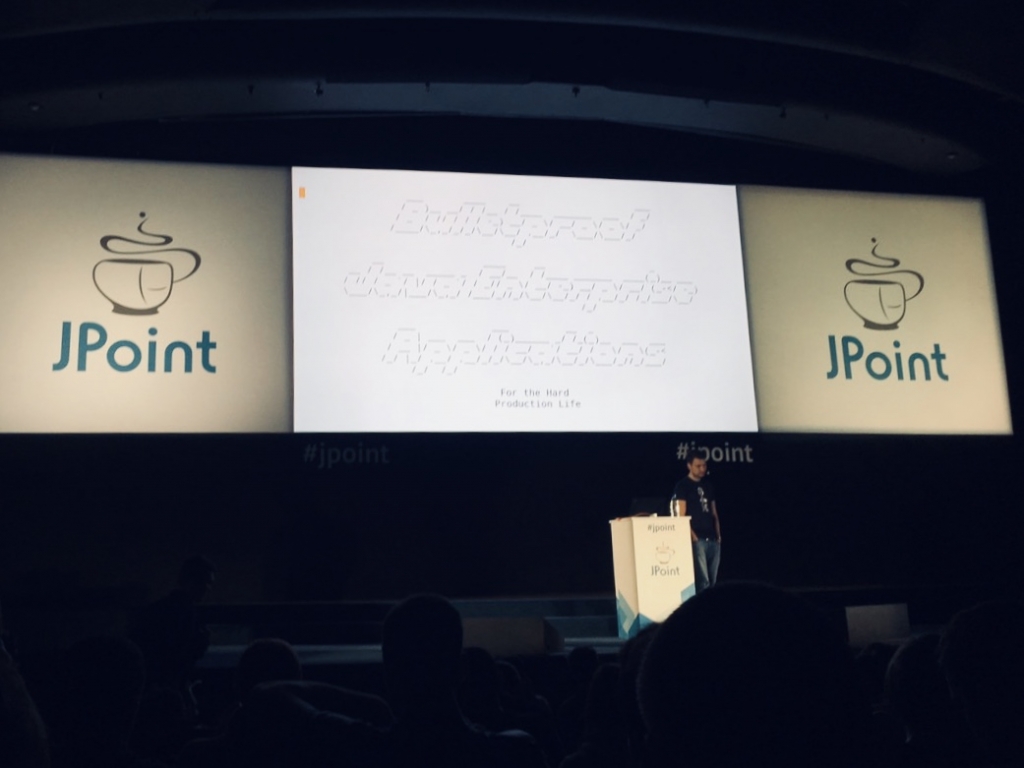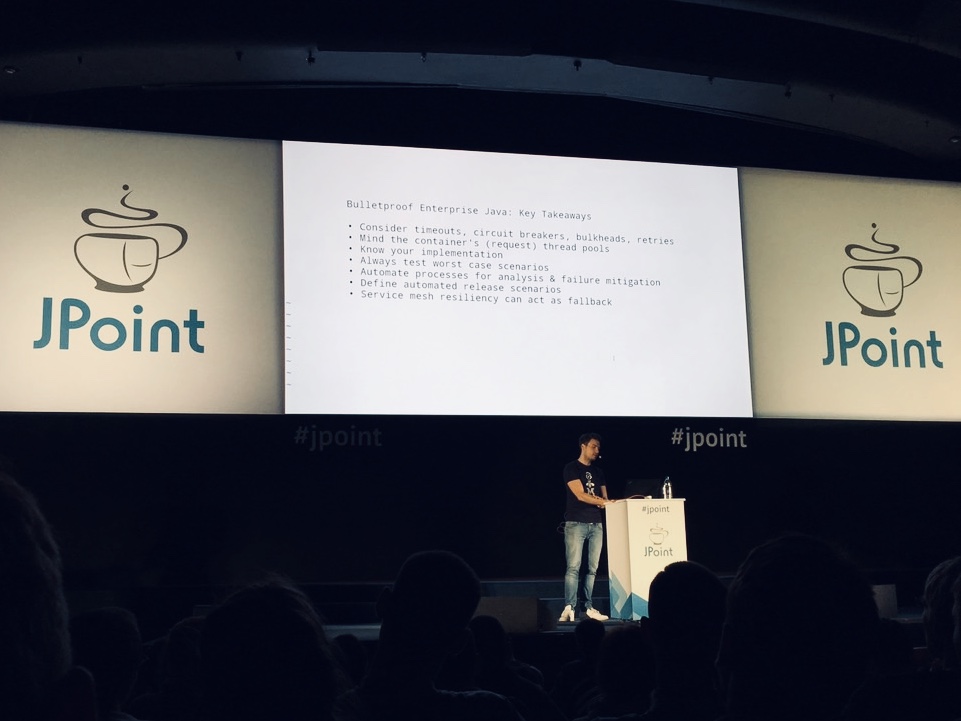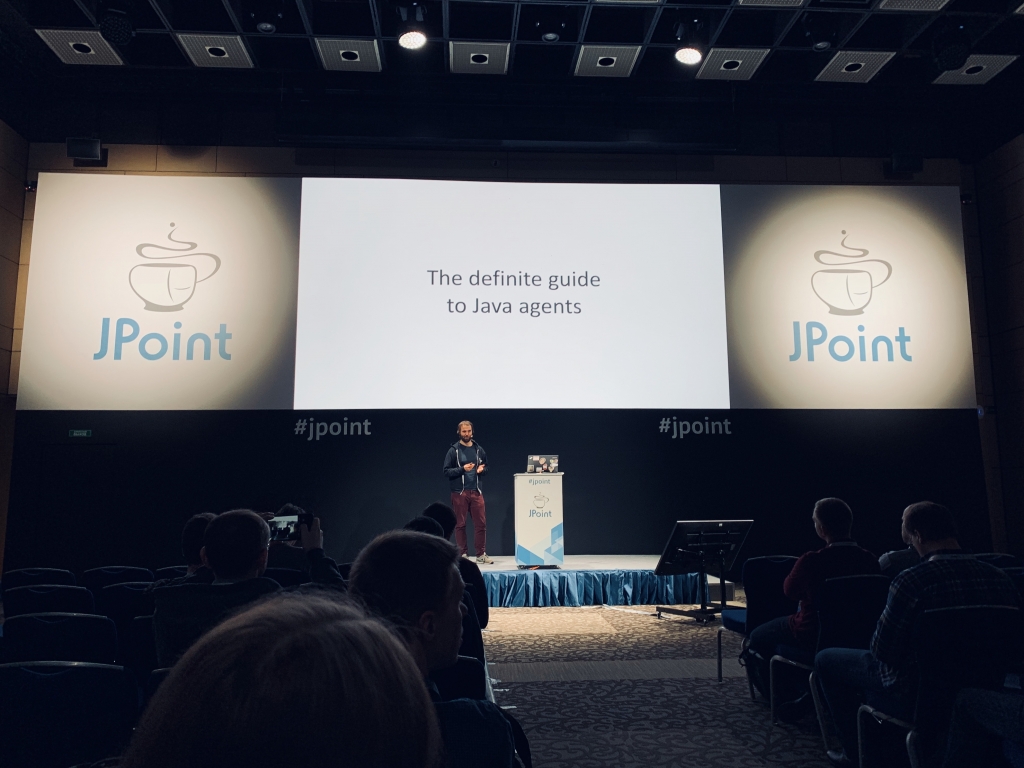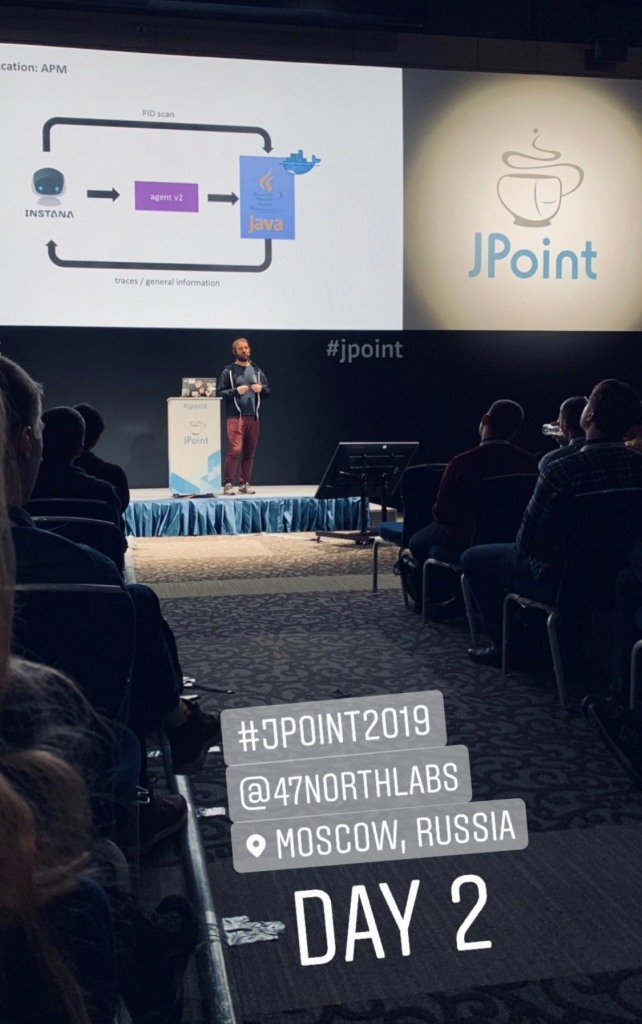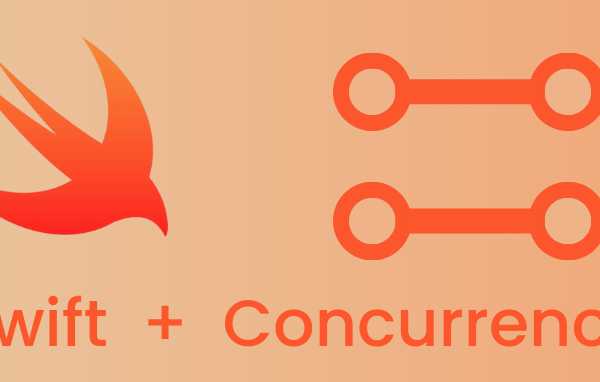If you have read my previous parts, this is the last one in which I will give my highlights on the talks that I have visited.
First stop was the opening talk from Anton Keks on topic The world needs full-stack craftsmen. Interesting presentation about current problems in software development like splitting development roles and what is the real result of that. Another topic was about agile methodology and is it really helping the development teams to build a better product. Also, some words about startup companies and usual problems. In general, excellent presentation.
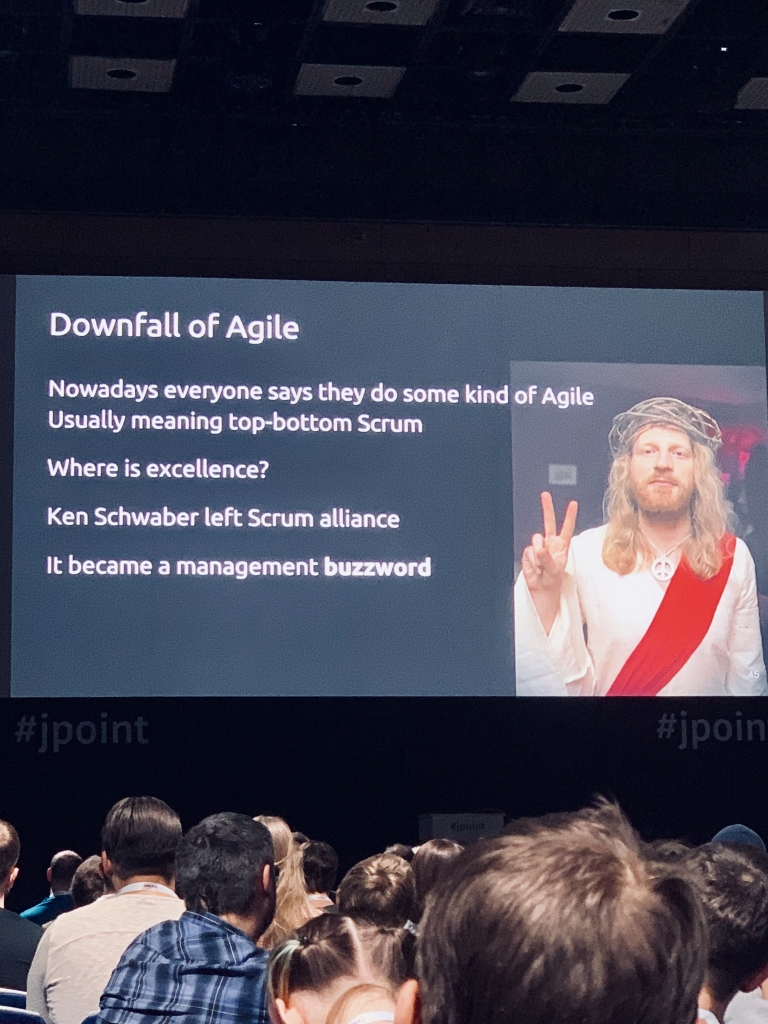
Simon Ritter, in my opinion, he had the best talks about JPoint. First day with the topic JDK 12: Pitfalls for the unwary. In this session, he covered the impact of application migration from previous versions of Java to the last one, from aspects like Java language syntax, class libraries and JVM options. Another interesting thing was how to choose which versions of Java to use in production. Well balanced presentation with real problems and solutions.
Next stop Kohsuke Kawaguchi, creator of Jenkins, with the topic Pushing a big project forward: the Jenkins story. It was like a story from a management perspective, about new projects that are coming up and what the demands of the business are. To be honest, it was a little bit boring for me, because I was expecting superpowers coming to Jenkins, but he changed the topic to this management story.
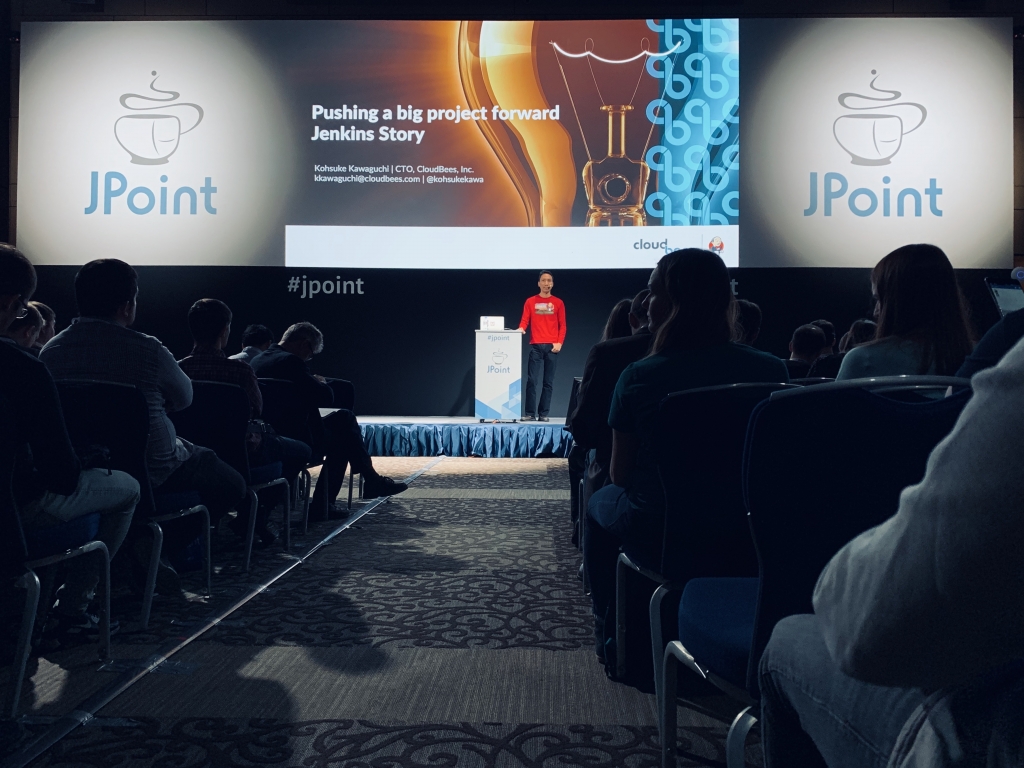
Sebastian Daschner from IBM, his topic was Bulletproof Java Enterprise applications. This session covered which non-functional requirements we need to be aware of to build stable and resilient applications. Interesting examples of different resiliency approaches, such as circuit breakers, bulkheads, or backpressure, in action. In the end, adding telemetry to our application and enhancing our microservice with monitoring, tracing, or logging in a minimalistic way.
Again, Simon Ritter, this time, with the topic Local variable type inference. His talk was about using var and let the compiler define the type of the variable. There were a lot of examples, when it makes sense to use it, but also when you should not. In my opinion, a very useful presentation.
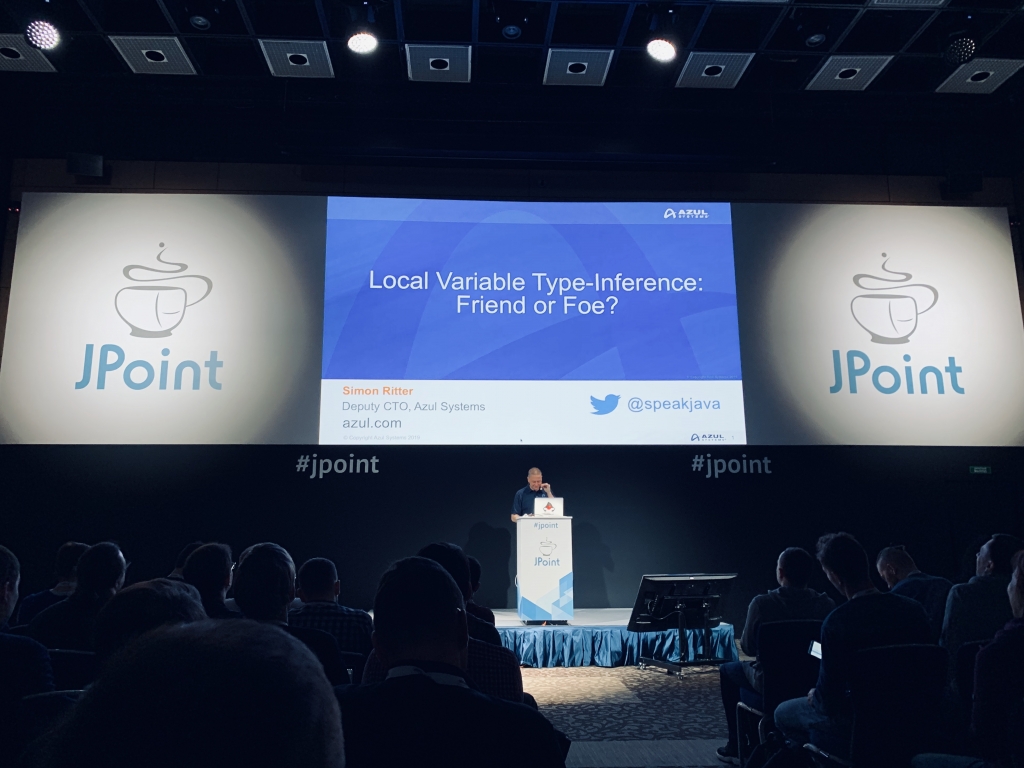
Rafael Winterhalter talked about Java agents, to be more specific he covered the Byte Buddy library, and how to program Java agents with no knowledge of Java bytecode. Another thing was showing how Java classes can be used as templates for implementing highly performant code changes, that avoid solutions like AspectJ or Javassist and still performing better than agents implemented in low-level libraries.
To summarize, the conference was excellent, any Java developer would be happy to be here, so put JPoint on your roadmap for sure. Stay tuned for my next conference, thanks for reading, THE END 🙂
